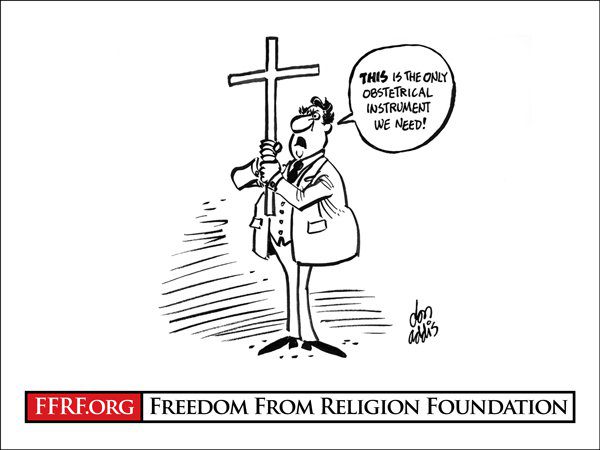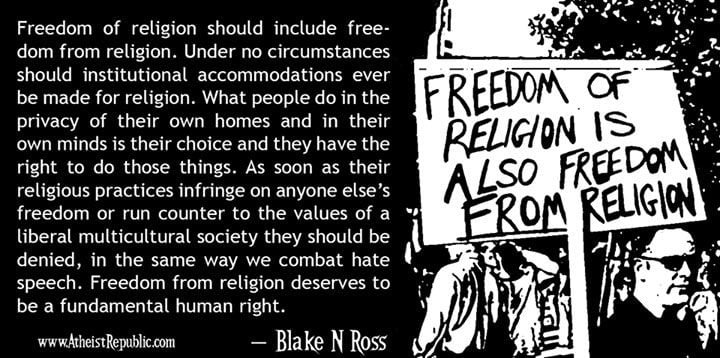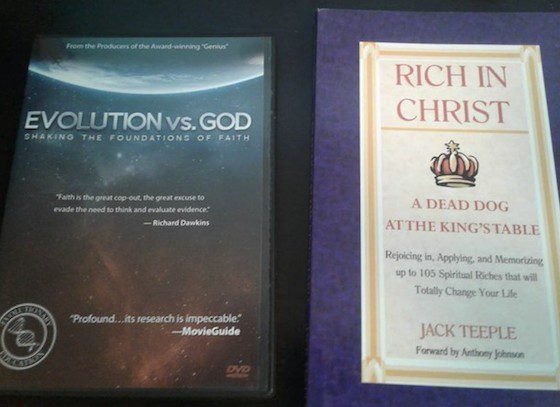
John MacFarlane is the pastor of First Baptist Church in Bryan, Ohio. First Baptist is an Independent Fundamentalist Baptist (IFB) congregation. I’ve known John since he was seven years old. I attended First Baptist in the 1960s and 1970s. Its pastor at the time was Jack Bennett. Jack’s wife, Creta Daugherty, was the sister of two of my uncles, Paul and Ed.
John writes a daily blog devotional for his church. Typical Fundamentalist stuff, but, on occasion, John will say something that gets my attention or angers me:
- Local IFB Pastor John MacFarlane’s Latest on “Reverse Racism” and “Miscegenation”
- IFB Pastor John MacFarlane Says Showing Skin in Public Reveals a Sinful Heart
- A Person Who Doesn’t Have Jesus Has Nothing, Says IFB Pastor John MacFarlane
- People Who Swear Have “Dirty Hearts” Says IFB Pastor John MacFarlane
- Christians Say the Darnedest Things: IFB Pastor John MacFarlane Says Atheists Are Gods
- Dear John MacFarlane, Pastor of First Baptist in Bryan, Ohio
- OMG Pastor MacFarlane, Did You Really Say There’s No Racism in Rural Northwest Ohio?
- Frankly, Pastor MacFarlane, I Just Don’t Give a Damn
- Bob Sexually Assaulted Three Generations of Women, Yet He Went to Heaven When He Died
- Local Church Continues to Meet on Sundays Despite the Coronavirus Pandemic
- The Making of a Fundamentalist: First Baptist Church, Bryan, Ohio — Part One
- The Making of a Fundamentalist: First Baptist Church, Bryan, Ohio — Part Two
John probably wishes I would stop paying attention to him. 🙂 Do better, John, do better.
Yesterday, John wrote a “devotional” titled Problems on the 50-Yard Line, detailing his support for football coach Joe Kennedy. Kennedy, you may remember, is the coach who held prayer meetings after games at the fifty-yard line. Kennedy was asked by school officials to stop doing so. He refused and was subsequently fired. Kennedy sued, and the case is now before the U.S. Supreme Court.
The “evil” Freedom From Religion Foundation — whom I support — had this to say about Kennedy’s case:
The Freedom From Religion Foundation, joined by a coalition of secular organizations, has filed a compelling amicus brief before the U.S. Supreme Court in the case of a praying football coach who has achieved national notoriety.
The 9th U.S. Circuit Court of Appeals had last year ruled in favor of Washington’s Bremerton School District, which did not renew Coach Joe Kennedy’s contract after he defied reasonable requests to stop praying with students on the 50-yard line right after games. Kennedy had been singled out for praise by then-President Trump, including in a speech from the Oval Office on Religious Freedom Day, and has been a darling of Christian nationalist organizations and extremist members of Congress.
Joining FFRF on the brief are other national organizations that represent nonreligious Americans, including the Center For Inquiry, the American Humanist Association and the Secular Coalition for America.
The Supreme Court mystifyingly agreed to hear the case, which FFRF is arguing is moot, mandating that the court dismiss the case. After losing in the district court, Kennedy sold his home in Washington and moved approximately 2,800 miles to Pensacola, Fla., FFRF explains. Kennedy and his wife are no longer employed in Washington. The assistant football coach position at Bremerton High School is a year-round commitment that pays just $5,304. These changed circumstances are problematic for Kennedy because a Florida resident cannot sue a Washington school district over its policies.
“Under the court’s precedents, the case is moot,” states the brief. “This is reinforced by the principle that a plaintiff who removes himself from the threat of allegedly unconstitutional policies has mooted his claims for prospective relief.”
After documenting many instances in which atheist and non-Christian plaintiffs have faced procedural hurdles when seeking judicial relief, FFRF asserts that the Supreme Court must apply jurisdictional doctrines uniformly, otherwise it manipulates its jurisdiction in order to benefit preferred litigants.
“If the court asserts it has jurisdiction to decide such cases, it must apply its jurisdiction uniformly to all litigants, and not only to cases involving preferred litigants,” says the brief. “A review of the court’s cases involving religion highlights the need for the court to adopt an even-handed approach to jurisdiction.”
And if the court is inclined to review the merits of this case, it must take into account the harm caused to students who are nonreligious or who are religious minorities when coaches instigate prayer, FFRF stresses. The unique features of the coach-student relationship coerce students to participate in coach-led prayers. This type of religious activity, as FFRF demonstrates with many cogent examples, has harmed students in numerous respects, including by marginalizing nonreligious students and making them susceptible to attacks from other students and members of the community.
Plus, school athletic teams foster an atmosphere of both communal activity among players and also allegiance to the coach. These features, combined with the social pressures exerted when an authority figure engages in religious practices, coerce non-Christian students to participate in Christian prayers.
Coach Kennedy’s religious activity on the 50-yard line was a team activity. He intended to continue to pray with students on the field, as was his prior practice. Kennedy’s post-game prayers were anything but private. They were intended to be team prayers, FFRF emphasizes. This is problematic for students who would otherwise choose not to participate.
Because this case is moot, the Supreme Court should dismiss the appeal for lack of jurisdiction, FFRF concludes. Alternatively, as “it is improper and a gross violation of freedom of conscience to coerce or even encourage student athletes to pray in order to play,” FFRF urges the high court to affirm the ruling of the 9th Circuit against Coach Kennedy.
FFRF Senior Counsel Patrick Elliott is the lead drafter and counsel of record for the brief.
In his “devotional,” John had this to say about FFRF, atheists, agnostics, and, in his words, haters of God and religion:
Throughout the USA, we have seen religious freedoms erode as a small faction of atheists, agnostics, and haters of God and religion rear their vile heads. Even in Washington, a group of preachers and priests joined with the Freedom From Religion crowd to voice opposition to Kennedy. One of those voices was the “Right Reverend Douglas Avilesbernal, executive minister of the Evergreen Association of American Baptist Churches, which includes Bremerton.”
John is a Trumpist and a white Christian Nationalist. He believes the United States is a Christian nation. Thus, he has no problem with the Kennedys of the world violating the separation of church and state or the establishment clause. If Joe Kennedy was a Muslim, John would be outraged. But, he’s not, so Kennedy trampling all over the separation of church and state is fine, by him. Go, Jesus, Go!
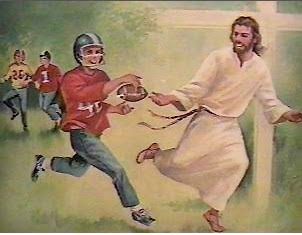
John is befuddled by pastors who voiced opposition to Kennedy. I am sure he doubts their “salvation.” However, these ministers rightly understand that we cannot have freedom of (and from) religion without there being a strict, inviolable wall of separation between religion and government. John, seemingly, is fine with mixing church and state as long as it is his religion that is given preferential treatment.
I want John to know that when he goes on rants as mentioned above, I take his words personally. When you attack FFRF, atheists, and agnostics, you are attacking me. You are attacking my family, friends, and neighbors. You are attacking my wife and some of my children and grandchildren. Do better, John, do better. Try acting like a Christian. Jesus said in Luke 6:27-28:
But I say unto you which hear, Love your enemies, do good to them which hate you, Bless them that curse you, and pray for them which despitefully use you.
How many atheists and agnostics have you loved today, John?
Repent!
Bruce Gerencser, 68, lives in rural Northwest Ohio with his wife of 47 years. He and his wife have six grown children and sixteen grandchildren. Bruce pastored Evangelical churches for twenty-five years in Ohio, Texas, and Michigan. Bruce left the ministry in 2005, and in 2008 he left Christianity. Bruce is now a humanist and an atheist.
Your comments are welcome and appreciated. All first-time comments are moderated. Please read the commenting rules before commenting.
You can email Bruce via the Contact Form.


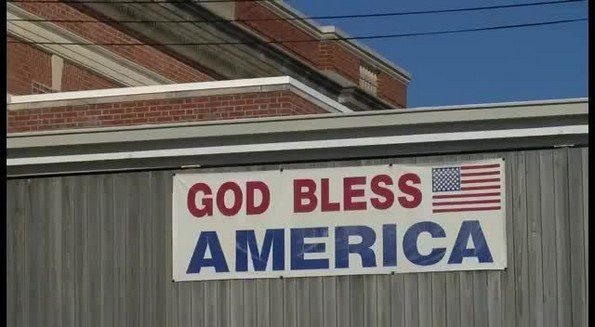
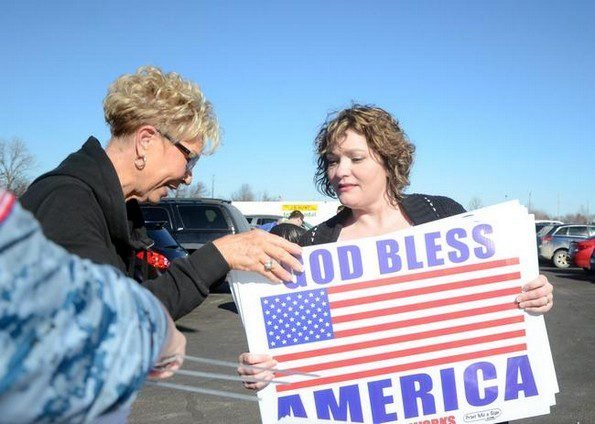

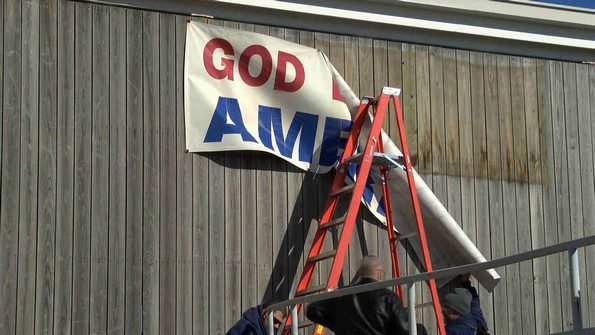




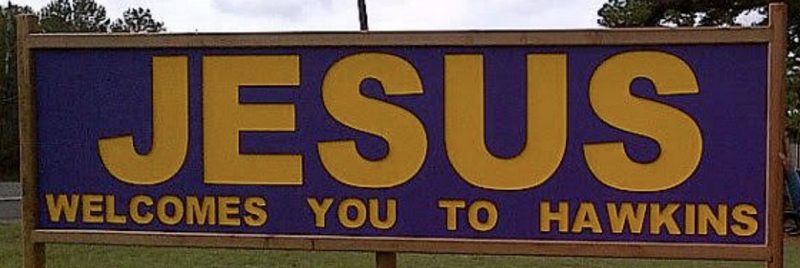 Jesus is not a religion, Jesus is in every religion across the globe. If you don’t believe that Jesus existed, then he would be fiction. If he’s fiction, and you want to remove his name from everything then you need to remove every fiction name that there is across the country. That means we couldn’t say Superman welcomes you to town.
Jesus is not a religion, Jesus is in every religion across the globe. If you don’t believe that Jesus existed, then he would be fiction. If he’s fiction, and you want to remove his name from everything then you need to remove every fiction name that there is across the country. That means we couldn’t say Superman welcomes you to town.